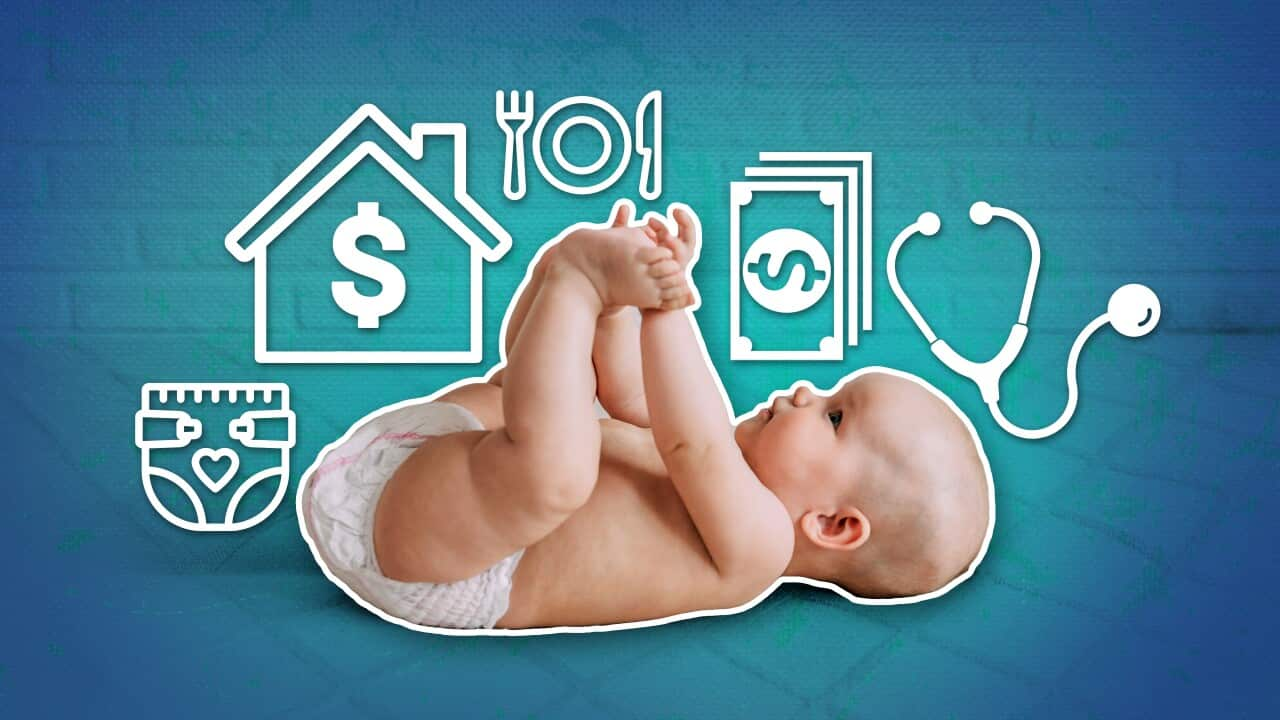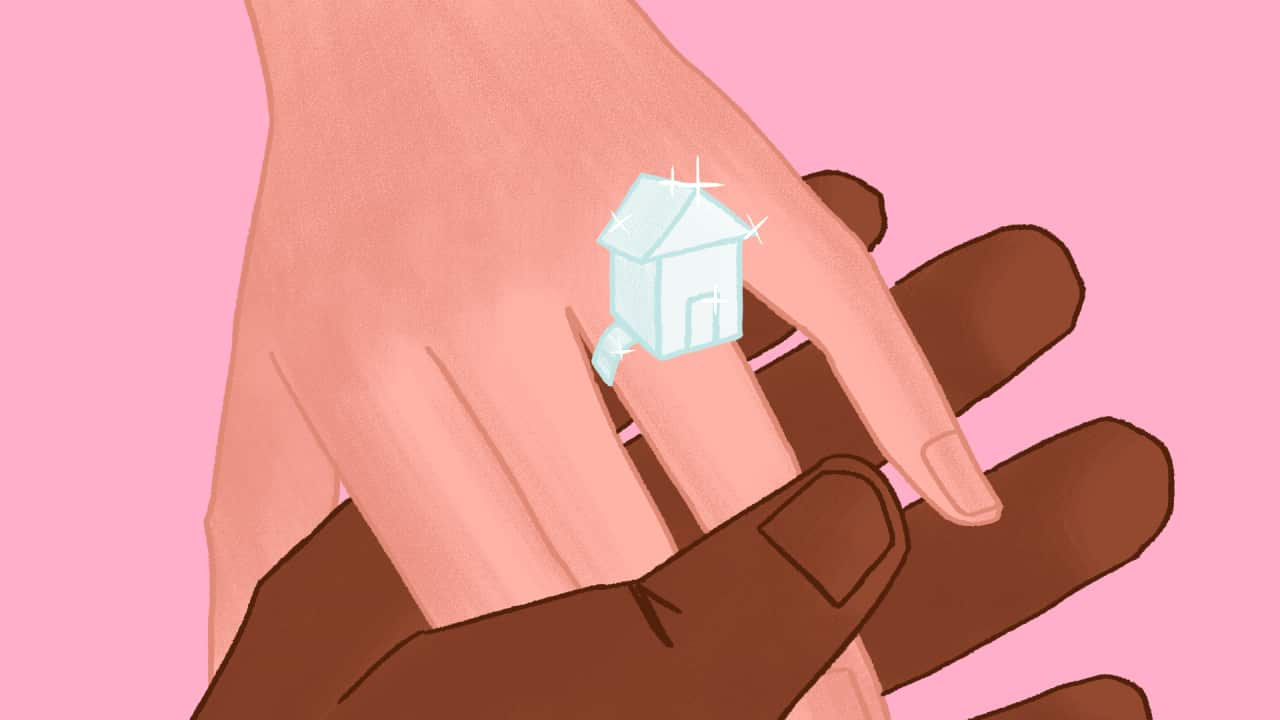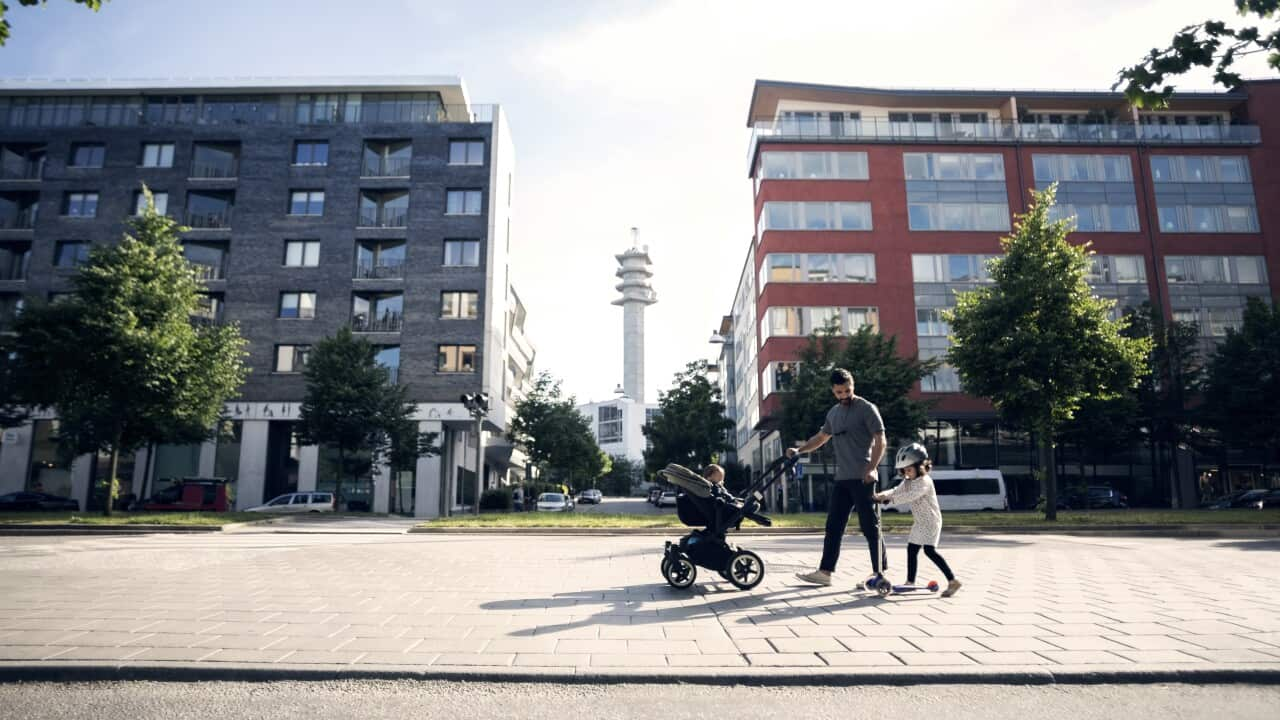When Cheryll and her partner were deciding whether to continue trying for a baby, they started to think about how their day-to-day life with a child would actually look.
The couple from Brisbane don't yet own a home and . Cheryll, who did not want to use her full name, has to commute for one hour to get to work, and her partner travels two hours each way.
"[We] can't move because we've got a rental crisis [and] can't afford to rent close to work. Even then, there's no rentals available," the 35-year-old said.
"It just seemed like it was just going to be too stressful, like we weren't going to have a very good relationship with each other, or our kid."
The couple were actively trying to get pregnant for around four years, eventually spending around $10,000 on in vitro fertilisation (IVF) despite going through the public health system.
Both of them were diagnosed with conditions that made it more difficult for them to conceive, and Cheryll also had to spend around $10,000 for other health expenses including surgery to diagnose her endometriosis, which she did through the private system.
The process was emotionally tough, Cheryll said.
On top of that, the out-of-pocket cost of the treatments made them reassess whether it was financially viable for them to have kids.
It just seemed like it was just going to be too stressful, like we weren't going to have a very good relationship with each other, or our kidCheryll, Brisbane resident
The couple lives paycheck-to-paycheck and Cheryll said she probably couldn't afford to take much maternity leave so her baby would have to be in child care from an early age.
"Someone else would basically be raising our kid and there would be no room to actually enjoy being a parent," she said.
Eventually, they decided to stop trying.
While the decision was mainly due to the emotional toll, financial concerns "sealed the deal", she said.
"You're not getting the results that you want but then you kind of go 'Is everything worth it?'."

Brisbane woman Cheryll was trying to get pregnant for around for four years. Source: Supplied
Life feels too difficult for many young people considering parenthood
For young people weighing up the costs of having a baby, Australia can look "inhospitable to families", demographer Dr Liz Allen of the Australian National University (ANU) told SBS News.
She said housing affordability, the rising cost of living, lack of secure employment, and concerns over the impacts of climate change, were all impacting young people's decisions on whether to have children and how many kids they could afford.
"We know that young people are foregoing having children because they can't afford it," Allen said.
The number of live births per woman in Australia is around 1.7, lower than the 2.1 babies required to maintain a constant population size over the long term without migration.

Australia's population is expected to keep growing, mainly due to immigration. Source: SBS News
"That uncertainty is going to undermine our security and potentially our democracy into the future," she said.
"We've created a system that is inhospitable to families and the future of this country, that must be changed."
We've created a system that is inhospitable to families and the future of this country, that must be changed.Dr Liz Allen, Australian National University
'I can't afford to give my child the childhood I was given'
Former NSW resident Amy, who is in her early 30s and now living in the United Kingdom, says she is frustrated that older generations believe the "traditional timeline" is still achievable.
"My generation have taken 10-plus years longer to break into the housing market, and five-plus years longer to find a life partner," she told SBS News.
She said she had worked hard in her 20s and so had her partner.
"Neither of us feel we've had the time to be financially stable adults who can enjoy our adulthood before having kids."
My generation have taken 10-plus years longer to break into the housing market, and five-plus years longer to find a life partner.Amy, former NSW resident
She said the couple wanted a comfortable home, financial stability and enough money to go on a couple of holidays a year.
"Inflation and the cost of living make these small dreams impossible for so many," she said.
"I'd want my child to have the childhood I was given but we can't afford that."
She said her parents had married at 21 years old, bought a house and had three children.
"I married a year ago at age 30 and we're still renting."
People need to feel confident about their jobs
KPMG urban economist Terry Rawnsley said fertility rates were often linked to economic cycles.
"People want to have confidence that both they, [and] their partner, have jobs and those jobs will be around for a while."
He agreed that housing affordability was also likely "crimping" the fertility rate.
"If you live in a two-bedroom unit in Sydney, and that's what you can afford, having one child makes logistical sense," he said.
"But having two children — it's much harder to do that in a two-bedroom apartment [and] you might not be able to afford a three-bedroom townhouse."
Rawnsley said , had lower birth rates, compared to more affordable cities like Brisbane.
He said improving fertility rates in Australia could ease the reliance on migrants in the long term, although it would not do anything to address current labour shortages.
Australia is one of around 50 countries and areas, where . Other countries include Canada and the United States.
Relying on immigration to boost the proportion of working-age people in the country was not necessarily a problem, but it did make issues around housing affordability more likely, Rawnsley said.
He also said there were also potential risks around relying on migration.
"The whole world is ageing — and there's just more and more competition for skilled migrants across the world," he said.
'We're asking women to do it all'
Allen said policies in Australia needed to better reflect the current reality young people were living, rather than the 1950s model of a family with a male breadwinner.
"We need to be able to support families no matter what they look like, to survive and to thrive," she said.
"That cannot mean that the only way to survive and the only way to make ends meet is to have a dual income [of] $150,000 each to break into the property market."
Allen said Australia should stop relying on the market to fix things like housing affordability.
"We've relied on business entities and the private market to control these things; government need to take more steps to consider what can be done."
This could include removing tax incentives for property speculation to make it easier for people to buy a home, rather than renting.
She said rental rights also needed to be improved as home ownership was getting more difficult.
Promoting gender equality was also important, Allen said, as women were still doing the largest share of unpaid work and were also being asked to participate in the paid workforce.
"We're asking women to do it all," she said. "But actually, we're saying [that] in order to have it all, you literally have to do it all, and we're not seeing men step up."

If women "want it all", they are expected to do it all, experts say. Source: Getty / Guido Mieth
This includes supporting men to be the primary caregiver if they want, she said.
"[Then] we can ensure a healthy population, a healthy workforce and healthy ageing, to ensure that we have a future worth living."
Reality of having children does not appeal
Amy said she didn't see many examples of mothers her age who seemed truly happy.
"They lose themselves to it and are quite depressed as a result," she said.
"They also hold a lot of resentment for their partners and I'd rather a marriage where we're equal, happy and fulfilled as we are."
Cheryll and her partner had only just finished paying off the debt from their medical bills, and have decided to embrace not having a child. She is now co-hosting a podcast about being childless called Barrenesses.
"I feel good about that decision," she said about quitting fertility treatments.
"But I don't really feel good about how the government keeps telling us to have kids but they don't really want to look at the reality of how hard it is for people."














